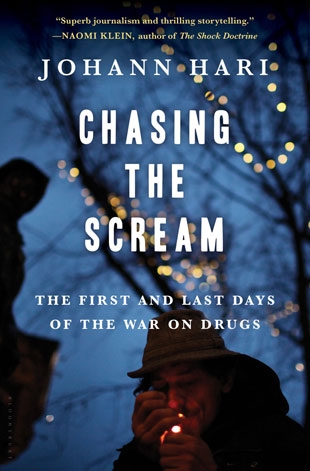In his masterful film Traffic (2000), Steven Soderbergh created a hard-hitting work of social conscience to show how mood altering drugs have invaded every aspect of American life. We wrote in our review:
"From what we read in the papers and the picture painted by this film, the so-called war on drugs appears to be a disastrous failure. Hundreds of thousands of people are in jail for drug offenses; millions are dead from substance abuse on all levels of society; and political corruption and violence have been spawned all over the world. For every group of addicts meeting together, there are three meetings of those affected by living in close association with them. The scope of the problem is staggering when you take into consideration those selling drugs, using them, or policing them. This contemporary thriller is a real eye opener; it offers a devastating critique of the present status of the war on drugs."
Now Johann Hari has written a powerful and enlightening book on the global war against drugs -- what we know and what we don't know about this battle and the incredibly diverse combatants in it. Forming the underlying foundation are profiles of three major American players in this ongoing tragedy: Harry Anslinger, the commissioner of the Federal Bureau of Narcotics from 1930 to 1982; Arnold Rothstein, a Jewish crime lord in New York City during the 1920s; and Billie Holiday, the famous jazz singer who died in 1959.
Hari's quest to find out all he could about drugs, those who use them and those who abuse them, takes him to nine different countries and adds many more players to the cast. He agrees with those who see the war on drugs as an example of racism at its worst.
In the closing chapters, Hari examines some of the experiments afoot in the search for more effective treatments for drug addiction. With its lively mix of profiles, history, crime and punishment, Chasing the Scream catches the ethical dimension of this tragedy in the same complex ways that Traffic did on the screen.
